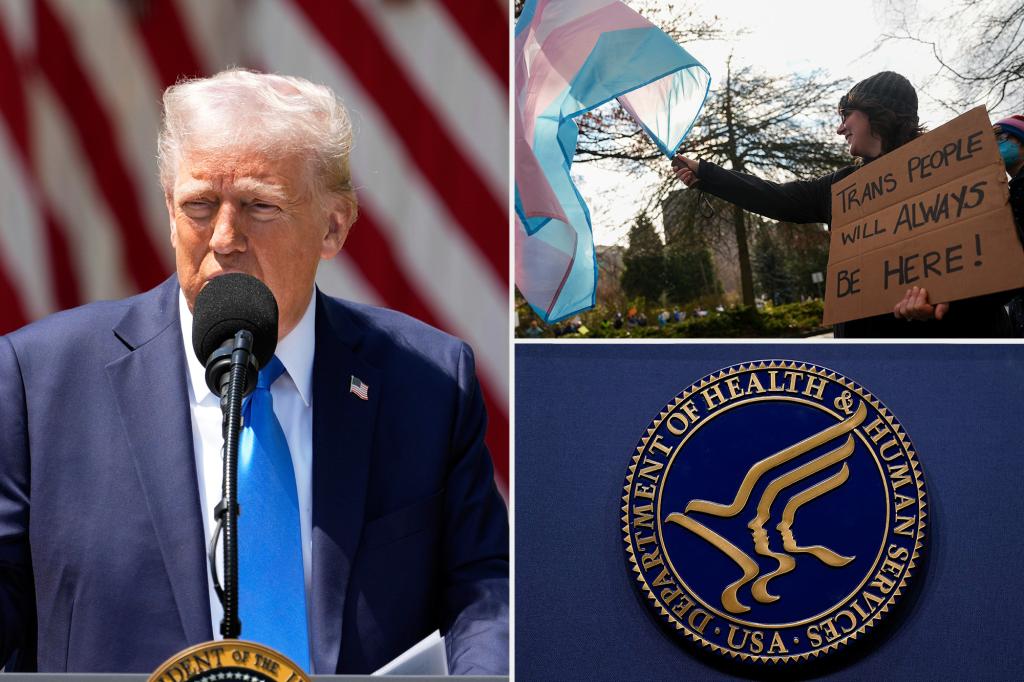New HHS Report Advocates Therapy Over Transition Treatments for Gender Dysphoria
A controversial report from the U.S. Department of Health and Human Services (HHS) under the Trump administration recommends prioritizing therapeutic interventions over medical transition treatments for individuals with gender dysphoria. Released this week, the document has reignited debates over best practices in gender-affirming care, drawing sharp reactions from medical professionals and advocacy groups.
Key Recommendations and Immediate Reactions
The HHS report argues that psychotherapy—rather than hormones or surgeries—should be the first-line treatment for gender dysphoria, particularly among minors. It cites concerns about the long-term effects of medical interventions and emphasizes “exploring underlying psychological factors.” The guidance aligns with conservative viewpoints but clashes with mainstream medical organizations.
Dr. Laura Edwards, a clinical psychologist specializing in gender identity, criticized the report: “This disregards decades of research showing that gender-affirming care saves lives. Therapy alone doesn’t reduce suicidality in transgender youth—access to medical care does.” Conversely, Dr. Mark Benson, a psychiatrist quoted in the report, stated, “We need more rigorous studies before endorsing irreversible treatments for adolescents.”
Contrast With Established Medical Guidelines
The HHS recommendations conflict with positions held by the American Medical Association (AMA), the American Academy of Pediatrics (AAP), and the World Professional Association for Transgender Health (WPATH). These organizations endorse a multidisciplinary approach, including medical transition when appropriate, citing studies such as:
- A 2022 JAMA Pediatrics study linking gender-affirming care to a 60% lower risk of depression in transgender youth.
- Data from the Trevor Project showing that 52% of transgender teens considered suicide in 2021—a risk mitigated by supportive care.
Critics argue the HHS report relies on outdated or selectively interpreted data. For example, it references a 2019 Swedish study on post-transition regret rates but omits subsequent research showing regret rates below 1% in most cohorts.
Political and Social Implications
The report arrives amid a surge in state-level bans on gender-affirming care for minors. Since 2021, 20 states have restricted access to puberty blockers or hormones, often citing concerns about “rushed decisions.” Advocates warn the HHS document could embolden further legislation.
Sarah Chen, director of the Transgender Rights Initiative, told reporters: “This isn’t about science—it’s about politicizing healthcare. The same administration that rolled back LGBTQ+ protections is now undermining evidence-based medicine.”
What’s Next for Gender Dysphoria Treatment?
Experts predict the report will face legal and academic challenges. The Biden administration could rescind it, but the debate highlights unresolved questions:
- How should clinicians balance caution with urgent mental health needs?
- What role should federal agencies play in defining treatment standards?
For now, the controversy underscores the need for nuanced, patient-centered care. Families and providers are urged to consult reputable sources like the AAP’s guidelines and seek care from accredited gender clinics.
Stay informed on evolving policies by subscribing to our health policy newsletter or attending our upcoming webinar on LGBTQ+ healthcare rights.
See more WebMD Network



